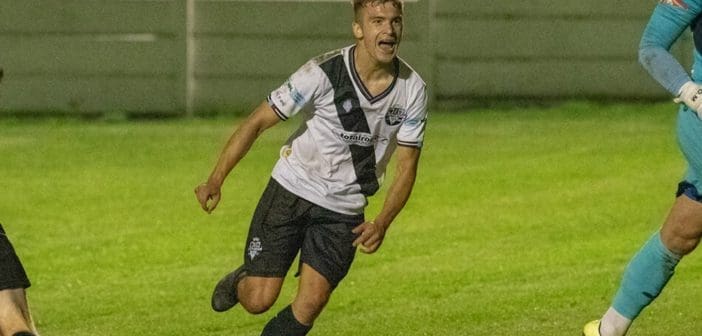The loan market is a fruitful place for every club in football, clubs across the world, no matter what level they play at all benefit from the idea of a loan move.
A key example of this would be the usual crop of youthful Premier League talent that find their way dotted all over the Sky Bet Championship. It provides fantastic opportunities for the country’s top teams to see how their young starlets make the step up from academy football to the men’s game. It’s fair to say that this process has unearthed a few diamonds.
The most recent success story comes from Chelsea. Only two seasons ago, Blues’ regulars Tammy Abraham, Mason Mount and Reece James were plying their trade in England’s second division with Aston Villa, Derby County and Wigan Athletic respectively. Now, just 24 months later, the trio are integral to Frank Lampard’s plans and have locked down their places in Gareth Southgate’s England squad for any upcoming international fixtures.
The loan market has always been a hugely significant piece of the transfer market puzzle, and to this day it still provides crucial opportunities for managers to strengthen their squads in ways that otherwise may have proved impossible.
A topic which is lesser-discussed, however, is the impact of loan moves on lower league youth prospects. With League One and League Two sides recruiting youngsters on loan from the divisions above, it’s the non-league sides that tend to benefit from the contingent of eager teenagers ready to make their mark and prove their worth to their parent clubs.
Danny Ings, Callum Wilson, Troy Deeney. These three strikers all have two things in common;
They’re all well-respected Premier League goal scorers who have proven pivotal to their sides in recent years and they’ve all spent their younger years on loan in non-league – making themselves inspirations to today’s youngsters plying their trade below England’s fourth division.
A forward looking to follow in their footsteps perhaps, is 19-year-old Keaton Mulvey. The young Englishman signed a pro contract with League One side Rochdale AFC in early January this year, and has since had loan spells with Runcorn Linnets and Mossley AFC in the Northern Premier Division One North West.
The Dale youngster, currently on loan at Mossley, spoke to me about his non-league loan moves, his future ambitions, and just how important the loan market is to young professionals such as himself.
“It’s massive because you’ve got to be playing men’s football, whatever level it’s at, to get confidence actually playing games. It’s great.”
Mulvey only trains once or twice a week with Mossley, depending on whether they have a game midweek or not, so carries on training with the Rochdale first team as normal.
“I noticed that when I wasn’t playing games, as I wasn’t quite getting into the Rochdale squad as I’m not in that position yet, I was just training every day and you sometimes lose a bit of motivation when you’re just training, so to be able to go on loan but still be there or thereabouts with Rochdale whilst getting game time in men’s football is good. It’s all about gaining an experience really.”
Mulvey then spoke about how playing in an academy compares to playing men’s football with Mossley.
“It’s totally different. It’s a lot more physical. They’re better players, a lot of the players even in Mossley’s league have come from higher leagues and a lot of them have been pros before and are working their way down, so it’s still a very good standard and the conditions of the game sometimes test whether or not you can step up.”
“Having that physicality, not even just in games, in training as well, it obviously gives you a lot more confidence to go and play at Rochdale’s level.”
The Dale forward spoke about how he’s benefitting from his non-league experience so far.
“Just learning game management stuff that I’ve not really been taught before, because at Mossley you’ll do anything to get three points, so say you’re 2-1 up with 10 minutes to go, you’re not going to try and play it out from the back. You’ll run it into the corners, keep it in there, play for fouls, run the clock down and get the other team frustrated.”
Mulvey believes that non-league will help shape the player he becomes.
“It will 100% help shape me. It teaches you how to deal with all the physicality and being able to cope with it. To be honest, I already had a bit of experience with that, just with the way I play, but to have other players playing against me like that, it just helps you develop.”
The teenager then spoke about the benefit of loan moves to non-league players in general.
“I reckon it definitely helps. I’ve spoken to a few other players who are in a similar position to me, who’ve gone out on loan, and they’ve all said the same things. It helps them and they love it, it gives them confidence and the chance to play games. That’s why we all play football, to play games and win games, so to do that it just gives you more and more confidence to go and play when you do go back to the level the parent clubs are at.”
Mulvey then outlined his ambitions.
“The end goal has got to be playing for Rochdale, and even higher, but that’s a very long-term goal. Just being part of the team, making some appearances, scoring a few goals for Rochdale. That’s got to be the reachable goal for now.”
From speaking to Keaton it’s clear to see how highly regarded non-league football is to young professionals, especially those looking to take their first steps in senior football to prove their worth.
With Ings, Wilson and Deeney the leading examples, it’ll certainly be interesting to keep an eye on who’ll be next to make the step up from non-league loanee to Premier League pro.
Follow us on Twitter @ProstInt
![Prost International [PINT]](https://prostinternational.com/wp-content/uploads/2021/08/PINTtFontLogoRoboto1536x78.jpg)

